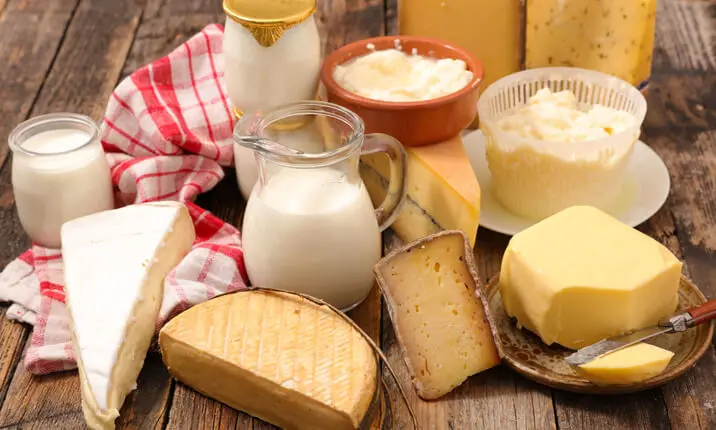
GERD (Acid Reflux): Foods to Eat & Avoid for Gastric Pain
30 Jul 2024
For many people, it's hard enough as it is to maintain a healthy, nutrient-rich diet without adding a stomach disorder into the mix. What happens when certain foods give you acid reflux? Or when you've had a life-changing stomach surgery, and you've been told to overhaul your lifestyle completely? What foods should you eat and avoid?
If you have concerns about your digestive health, always speak to a doctor.
What is GERD?
Gastro-oesophageal reflux disease (GERD), or acid reflux, is a common disorder that affects the muscle linking your food pipe and stomach. Sometimes, it can be caused by a hiatal hernia – where part of the stomach bulges up into the food pipe, causing stomach acid to rise – but not always. GERD is also an organic cause of gastric pain.
Symptoms of GERD include heartburn and indigestion.
Foods to eat if you have GERD
If you want to reduce your symptoms of GERD, diet is a key factor. And don't worry, it's not all about cutting food out – in fact, eating the right type of foods that are low in fat can also help to manage the condition!
To avoid any form of gastric pain, be sure to eat foods that are gentle on your stomach. Some food options that are unlikely to inflame or irritate your stomach include:
Vegetables
We all know we should eat our greens, but this is especially important if you have GERD. Most vegetables are low in fat and don't contain much sugar, which can help to reduce acid levels and prevent that burning feeling in your chest. Just remember to prepare these vegetables with less oil.
Vegetables that are good to eat when you have GERD include:
- Broccoli
- Cucumbers
- Asparagus
- Cauliflower
- Leafy greens
- Potatoes
Lean meat
High-fat meats, like beef, pork and lamb, sit longer in your stomach and can contribute to the burn of rising acid. Try swapping them for leaner, low-fat meats like chicken, turkey or fish, and baking, poaching or stir frying them with less oil instead of deep frying.
Whole-grain foods
Overeating is one of the contributors to heartburn. Eating food that are high in fibre will make you feel full, therefore less likely to overeat.
High-fibre foods include:
- Whole-grains, such as oatmeal, brown rice and whole-grain bread
- Root vegetables, such as potatoes, carrots, turnips and parsnips
- Green vegetables, such as broccoli, asparagus, leafy greens and peas
Foods to avoid if you have GERD
Knowing your 'triggers' can take a bit of experimentation and time. You may find you're fine to eat some common GERD-triggering foods, while other seemingly harmless foods may unexpectedly flare your symptoms. The best thing you can do is pay attention to your body and adjust your diet accordingly.
People with GERD may also have the lining of their oesophagus damaged from the acid reflux. In this case, it is important to avoid foods that can irritate the oesophageal tissue and cause further damage.
Generally, foods that are high in fat puts you at increased risk of acid reflux. It is therefore prudent to avoid these foods or eat them sparingly. These foods include:
- French fries and onion rings
- Full-fat dairy products, such as butter, whole milk, regular cheese and sour cream
- Fatty cuts of beef, pork or lamb
- Animal fat, processed meat, including bacon fat, ham fat and lard
- Desserts or fried snacks, such as chocolate, ice cream and potato chips
- Cream sauces, gravies and creamy salad dressings
Other foods that may also trigger GERD symptoms include:
- Alcohol and caffeine
- Carbonated beverages
- Tomatoes and citrus fruits
- Mint
- Garlic and onion
- Spicy foods
Additionally, making certain lifestyle changes can also help with managing your GERD symptoms. These include:
- Losing weight and maintaining a healthy weight
- Avoiding peppermint or spearmint chewing gum
- Quitting smoking
- Sitting up or walking after eating instead of lying down
- Eating at least 3 to 4 hours before bedtime
- Avoiding tight clothing
- Avoid skipping breakfast
- Avoid eating quickly, or overeating, or hot food
- Limit late-night snacking
Planning a healthy diet with a stomach disorder
The most important thing to do with any stomach disorder is listen to your body. What negatively affects someone else may not affect you in the same way, and vice versa. Keeping a food diary can help you to keep track of 'safe' foods and foods to avoid to reduce indigestion, gastric pain, and unwanted discomfort.
If you have specific health concerns or need more nutritional advice, consult a doctor or a dietitian.
References
Dumping Syndrome. (n.d.). Retrieved April 19, 2018, from https://www.nostomachforcancer.org/about/life-without-a-stomach/special-concerns/dumping-syndrome
Dumping Syndrome: Causes, Foods, Treatments. (n.d.). Retrieved April 19, 2018, from https://www.webmd.com/digestive-disorders/dumping-syndrome-causes-foods-treatments#2
Gastroesophageal Reflux Disease (GERD). (n.d). Retrieved April 19, 2018, from https://www.webmd.com/heartburn-gerd/guide/reflux-disease-gerd-1#1
Higuera, V. & Madell, R. (2018, March 18). 7 Foods to Help Your Acid Reflux. Retrieved April 19, 2018, from https://www.healthline.com/health/gerd/diet-nutrition#helpful-foods
Krans, B. (2017, November 20). Gastrectomy. Retrieved April 19, 2018, from https://www.healthline.com/health/gastrectomy
McDermott, A. (2016, May 16). Will Eating Apples Help If You Have Acid Reflux? Retrieved April 19, 2018, from https://www.healthline.com/health/digestive-health/apples-and-acid-reflux
What Foods Should I Eat? (n.d.). Retrieved April 19, 2018, from https://www.nostomachforcancer.org/about/life-without-a-stomach/special-concerns/what-foods-should-i-eat
Diet: Foods That Help with Acid Reflux (Heartburn). (n.d) Retrieved December 16, 2021, from https://www.hopkinsmedicine.org/health/wellness-and-prevention/gerd-diet-foods-that-help-with-acid-reflux-heartburn
Foods to Help Your Acid Reflux. (2021, September 07) Retrieved December 16, 2021, from https://www.healthline.com/health/gerd/diet-nutrition
Dietary and Lifestyle Factors Related to Gastroesophageal Reflux Disease: A Systemic Review. PMID 33883899 (2021, April 15). Retrieved June 23, 2022, from https://pubmed.ncbi.nlm.nih.gov/33883899/







